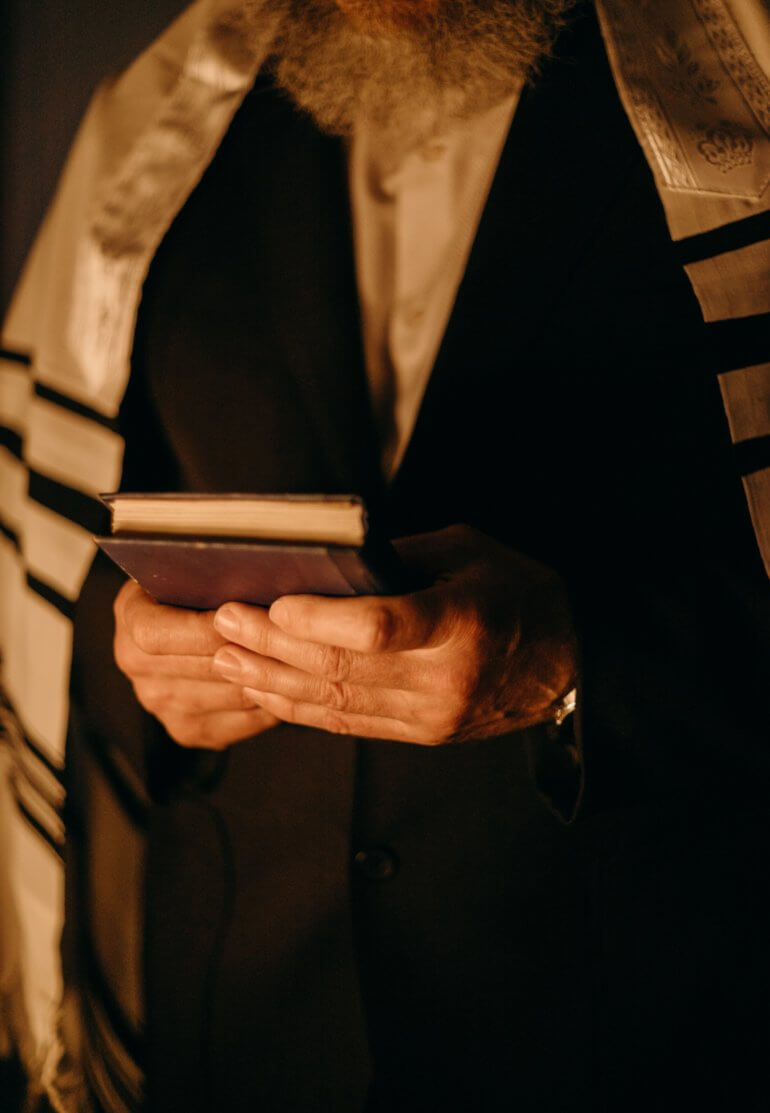
Can You Get A Second Opinion In Matters of Jewish Law?
Dear JITC,
I know you’re not meant to “shop around” in matters of getting a psak (a ruling in a matter of Jewish law). But can you ever seek a second opinion and, if so, how?
Best,
Josh
—
Dear Josh,
Thanks for your question. It dovetails very nicely with another topic that we discussed recently, namely picking and choosing which opinions to follow. Three important points were made there, which I’d like to reiterate here. The first two are:
- Every person is supposed to get himself a rabbi to follow (Avos 1:6 and 1:16); and
- All rulings made by qualified halachic decisors – even when contradicting – represent the will of God (Eiruvin 13b).
Now, if all opinions are equally valid, one might ask why we need to follow a particular rabbi. Why not just follow all the opinions that suit our needs? This brings us to our third point:
- Following the lenient rulings of all authorities makes one wicked; following the stringencies of all authorities makes one a fool (Chulin 43b-44a and Eiruvin 6b-7a).
Left to our own devices, we run the risk of picking and choosing only those rulings that suit our needs. This point is essentially made by the Sforno in his commentary on Avos 1:16. He writes:
Get yourself a teacher and remove yourself from doubt: Even though the Sages said that one may act according to the words of Beis Shammai or according to the words of Beis Hillel as he chooses because both opinions represent the words of the living God, in any event it is appropriate to designate one specific teacher for yourself, whose opinion you will always follow and you will act according to his rulings. Through this, you will be removed from the doubts caused by differing opinions so that your heart won’t lean to one authority’s words in some cases and another authority’s words in others. The Sages tell us that regarding such a person Koheles 2:14 says, “and the fool walks in darkness.”
Did you ever hear the expression that a lawyer who represents himself has a fool for a client? The same is kind of true for ruling in matters of Jewish law. Even if one is fairly knowledgeable in matters of Jewish law, we just aren’t objective about ourselves. Invariably, we’re going to see what we want to see and skew our decisions to align with what we want them to be. For this reason, each of us should have a rabbi and abide by his decisions.
But sometimes we have legitimate reasons to question a ruling. We may think that our rabbi has made an error, or perhaps there are extenuating reasons in our situations that we fear he may not have considered. In such a case, it might be perfectly legitimate to ask for a second opinion.
Consider these two Talmudic passages. In Avodah Zara 7a we are told that if you ask a rav a question of ritual purity and he declares an item unclean, you can’t ask another rav to declare it clean; if you ask a rav a question of permissibility and he rules something prohibited, you can’t ask another rav to declare it permitted.
And yet, in Niddah 20b, Yalta (Rav Nachman’s wife) brought a stain to Rabbah bar Bar Channah to evaluate. He ruled it unclean, so she brought it to Rav Yitzchak, who ruled it clean. And yet, the Talmud doesn’t object to this! Why don’t Yalta’s actions violate the rule cited above?
The gemara explains that Yalta told Rav Yitzchak that Rabbah bar Bar Channah typically ruled such stains to be clean, but he was experiencing eye pain that day. So (a) Yalta had reason to believe that Rabbah bar Bar Channah had made a factual error and this was not just a difference of opinion and (b) she told Rav Yitzchak that she had consulted Rabbah bar Bar Channah first and what his ruling was.
The Rema (the Ashkenazic gloss on the Shulchan Aruch) rules this way explicitly:
“Once an authority has prohibited something, his colleague cannot permit it based on his own reasoning, but if he has a tradition that the ruling was incorrect or if the first authority erred in some matter that was taught, then the second authority may permit it. Even if the first authority erred in his reasoning, the second authority can have an exchange with him until he changes his mind. Therefore, there is no prohibition to ask the second authority, provided that the questioner informs him that the first authority has already ruled to prohibit…” (YD 242:31).
Sometimes it might even be advisable to seek a second opinion. Tosfos (Baba Kama 100a) teaches that if someone slaughters a cow and shows it to a rav who rules it non-kosher, he shouldn’t be in a hurry to feed it to his dogs (which would cause him a great loss). Rather, it would be prudent for him to show the cow to another authority before disposing of it. If something has major consequences, making sure before acting on a ruling is just good sense.
One final note: “Get yourself a rabbi” doesn’t mean that you can only have one rabbi. I answer a lot of questions but I also know my paygrade, so I refer a lot of questions to authorities. There’s one person I consult on kashrus matters, another on conversion questions, and still another on funereal issues. For the average person, one rabbi will probably suffice, but if circumstances require approaching another authority with a question in his area of expertise, that would be fine.
So asking for a second opinion is not typically necessary or appropriate; the only reason one would do so in most cases is because he just doesn’t like the answer he was given. But if there’s a real reason to think that an error was made or that the ruling is for some reason inapplicable, or if the stakes are very big, then one may indeed seek a second opinion. But when doing so, one must be respectful of the first rabbi (see Rashi on Niddah 20b) and give a full disclosure to the second.
Sincerely,
Rabbi Jack Abramowitz, JITC Educational Correspondent
If you found this content meaningful and want to help further our mission through our Keter, Makom, and Tikun branches, please consider becoming a Change Maker today.







